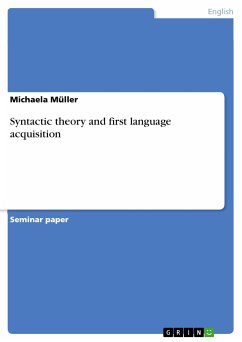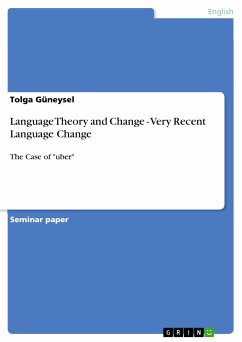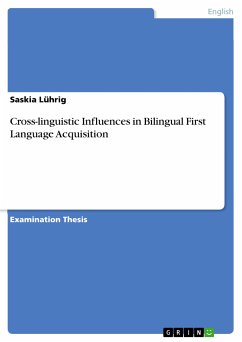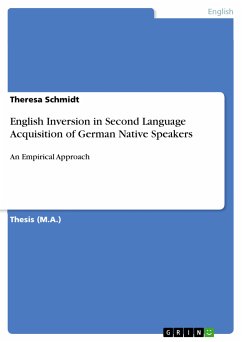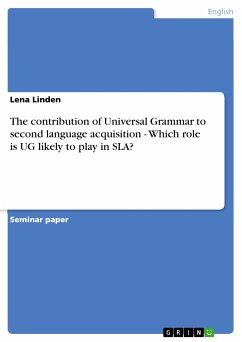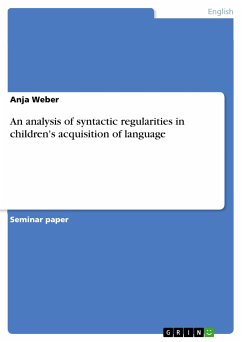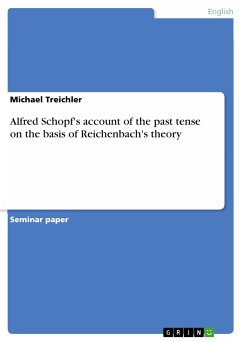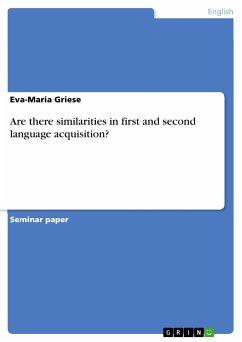Seminar paper from the year 2002 in the subject English Language and Literature Studies - Linguistics, grade: 1,3 (A), University of Cologne (English Seminar), course: Hauptseminar Syntactic theory and first language acquisition, language: English, abstract: Heather’s (26 months old) speech shows that she has already entered the later multi-word stage. She makes use of the three primary functional category systems (the D-system, the I-system and the C-system), which are projections of the corresponding functional categories (D, I and C).The core assumption of the X-bar model is that any word category X can function as the head of a phrase and can be projected into the corresponding phrasal category XP by addition of up to three different kinds of modifiers which are full phrasal constituents: complement, adjunct and specifier. Therefore, phrases in English have the schematic structure below: [x’’ specifier [x’ adjunct [x’ [x head] complement/s]]] Functional category systems, in contrast to lexical category systems, lack semantic content, but have grammatical meaning. Furthermore, functional elements permit only one complement. All of these functional category systems consist of a head, a complement and a nonthematic specifier position and so have a symmetrical structure. The following essay will describe these systems of English and the use of nonthematic specifier positions in adult grammar.

